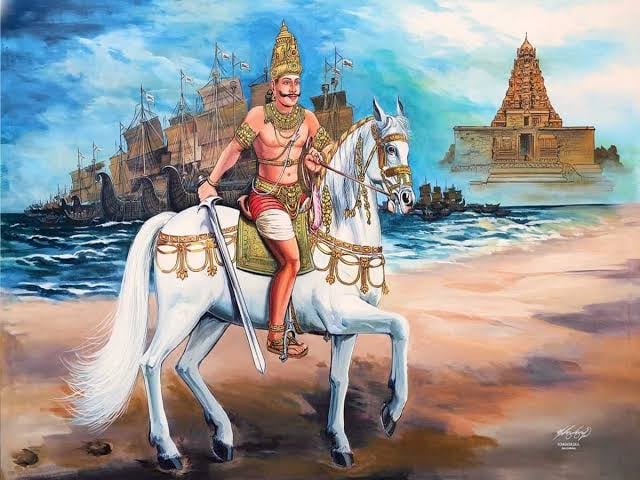Mani Ratnam’s cinematic masterpiece, Ponniyin Selvan, captivated audiences with its grandeur and storytelling. But beyond the spectacle lies a deeper connection – its historical relevance that continues to resonate even today.
Echoes of the Chola Empire
The film delves into the heart of the Chola dynasty during the 10th century, a period marked by ambition, power struggles, and the rise of the legendary emperor Rajaraja Chola I. While the narrative takes creative liberties, it stays grounded in the historical context. We witness the strategic brilliance of the Cholas, their complex political landscape involving allies and rivals, and the social dynamics shaping their era.

Themes that Transcend Time
Ponniyin Selvan isn’t merely a historical retelling. It explores timeless themes that remain relevant in our modern world:
- Leadership and Legacy: The film portrays the making of a great leader in Arulmozhivarman, highlighting the qualities of vision, strategy, and the ability to unite. His journey reflects the enduring impact leaders have on shaping societies.
- Love and Sacrifice: The intricate love stories woven into the narrative showcase the power of love and the sacrifices individuals make for it, reminding us of its enduring presence across cultures and times.
- Family, Duty, and Ambition: The film grapples with the complexities of family ties, the weight of duty, and the pursuit of ambition. These themes continue to influence personal choices and societal structures even today.

Diverse Perspectives and Artistic Interpretation
It’s crucial to acknowledge that historical fiction, like Ponniyin Selvan, presents an interpretation of the past. While the film incorporates factual elements and historical figures, it also takes creative liberties to enhance the narrative flow and dramatic impact.
Despite these artistic choices, the core themes and the portrayal of the Chola era spark curiosity and encourage viewers to delve deeper into the rich tapestry of Indian history.

A Bridge Between Past and Present
Ponniyin Selvan’s historical relevance lies in its ability to transport viewers to a bygone era, offering a glimpse into the grandeur, complexities, and enduring themes that shaped a significant period in Indian history. It serves as a bridge between the past and present, reminding us that the stories of our ancestors continue to hold meaning and relevance in our contemporary world.













